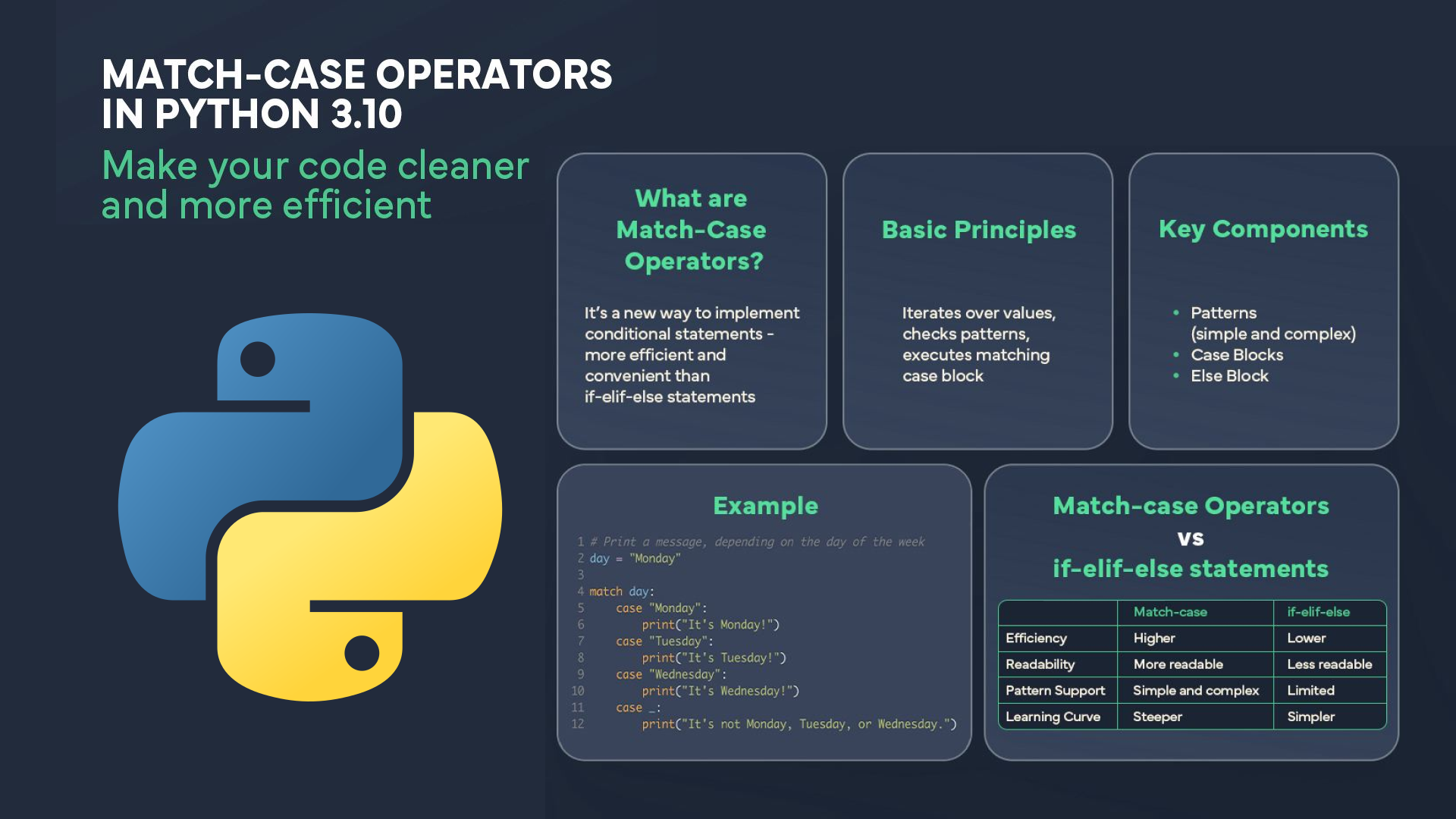Related courses
See All CoursesBeginner
Introduction to Python
Python is a high-level, interpreted, general-purpose programming language. Distinguished from languages such as HTML, CSS, and JavaScript, which are mainly utilized in web development, Python boasts versatility across multiple domains, including software development, data science, and back-end development. This course will guide you through Python's fundamental concepts, equipping you with the skills to create your own functions by the conclusion of the program.
Intermediate
In-Depth Python OOP
This course covers Object-Oriented Programming (OOP) in Python, starting with the basics and progressing to advanced concepts. You will implement a User model to gain practical experience and understanding of OOP features. By the end of the course, you will have a strong foundation in OOP and a deeper knowledge of Python's inner workings.
Using Slots in Python
Understanding and Implementing __slots__ in Python Classes

Python's dynamic and flexible nature is one of its greatest strengths, but this can sometimes lead to less efficient memory usage. In scenarios where memory efficiency is critical, Python provides a feature known as __slots__ to help developers optimize their classes. This comprehensive guide delves deeply into the concept of __slots__, exploring how they work, how to implement them, their benefits, limitations, and advanced use cases.
What are `__slots__` in Python?
In Python, by default, each object maintains its attributes in a dynamic dictionary, which offers great flexibility but at a memory cost. __slots__ provide an alternative. By defining __slots__ in a class, you instruct Python to store instance attributes in a fixed-size array, rather than in a dynamic dictionary. This can lead to significant memory savings, especially when you have a large number of instances.
How `__slots__` Work?
When you define __slots__ in a class, Python changes the storage model for instances of that class. Instead of each object having a __dict__ for attribute storage, Python allocates space for a fixed set of attributes, as defined in __slots__. This approach reduces the memory overhead associated with each instance.
Run Code from Your Browser - No Installation Required

Implementing `__slots__`
To use __slots__, you define it at the class level. The __slots__ attribute should be a list or tuple containing the names of the attributes you want to store in slots.
class MyClass:
__slots__ = ['name', 'age']
def __init__(self, name, age):
self.name = name
self.age = age
Here, MyClass instances will only have the name and age attributes, and attempts to add other attributes will result in an error.
Deep Dive into the Benefits of Using `__slots__`
- Memory Efficiency: The most significant benefit of using
__slots__is the reduction in memory overhead. This is particularly beneficial in applications where millions of instances are created, such as in large-scale data processing or simulations. - Faster Attribute Access: Access to attributes in a class with
__slots__can be faster than in a regular class. This is because accessing an element in an array is typically faster than a dictionary lookup. - Immutable Attributes:
__slots__can enforce immutability for certain attributes, preventing unintended modifications and enhancing code stability.
Limitations and Considerations
- Inheritance Complexities:
__slots__in a base class do not get inherited by subclasses. Each subclass that requires slots must define its own__slots__. This can add complexity to class hierarchies. - Flexibility Trade-off: With
__slots__, you lose the ability to dynamically add new attributes to instances, which is a trade-off against the memory savings. - Compatibility Issues: Some features of Python, like weak references, may not be compatible with
__slots__.
Start Learning Coding today and boost your Career Potential

Inheriting from a Class with `__slots__`
Inheriting from a class with __slots__ requires careful planning. If a subclass also defines __slots__, its instances will only have slots for the attributes listed in its own __slots__, plus any non-overlapping slots in the base class.
class SubClass(MyClass):
__slots__ = ['additional_attribute']
This subclass will have slots for both the inherited attributes (name and age) and its own unique attribute (additional_attribute).
Combining `__slots__` with Property Decorators
Using __slots__ with property decorators can create powerful combinations, such as read-only attributes or computed properties that don’t consume additional memory.
class MyClass:
__slots__ = ['_name']
@property
def name(self):
return self._name
In this example, name acts as a read-only attribute, and trying to set it will raise an AttributeError.
FAQs
Q: Is it necessary to have a deep understanding of Python to use __slots__ effectively?
A: While basic knowledge of Python classes is sufficient to start using __slots__, a deeper understanding of Python’s memory model will help you make more informed decisions.
Q: Can __slots__ be used in conjunction with dynamic method addition?
A: Yes, __slots__ restricts only the dynamic addition of attributes. Methods can still be added dynamically.
Q: What are the risks associated with using __slots__ in Python?
A: The main risk lies in the loss of flexibility for dynamic attribute addition and potential issues with Python features that rely on the presence of a __dict__.
Q: How can I determine if __slots__ will be beneficial for my application?
A: Consider using __slots__ if your application creates many instances of a class and if memory footprint is a concern. Profiling memory usage before and after implementing __slots__ can provide concrete insights.
Q: How does __slots__ interact with Python’s multiple inheritance model?
A: __slots__ can be used with multiple inheritance, but it requires careful management to ensure that the slots in all parent classes are properly accounted for and do not conflict.
Related courses
See All CoursesBeginner
Introduction to Python
Python is a high-level, interpreted, general-purpose programming language. Distinguished from languages such as HTML, CSS, and JavaScript, which are mainly utilized in web development, Python boasts versatility across multiple domains, including software development, data science, and back-end development. This course will guide you through Python's fundamental concepts, equipping you with the skills to create your own functions by the conclusion of the program.
Intermediate
In-Depth Python OOP
This course covers Object-Oriented Programming (OOP) in Python, starting with the basics and progressing to advanced concepts. You will implement a User model to gain practical experience and understanding of OOP features. By the end of the course, you will have a strong foundation in OOP and a deeper knowledge of Python's inner workings.
The SOLID Principles in Software Development
The SOLID Principles Overview
by Anastasiia Tsurkan
Backend Developer
Nov, 2023・8 min read

30 Python Project Ideas for Beginners
Python Project Ideas
by Anastasiia Tsurkan
Backend Developer
Sep, 2024・14 min read

Match-case Operators in Python
Match-case Operators vs if-elif-else statements
by Oleh Lohvyn
Backend Developer
Dec, 2023・6 min read

Content of this article